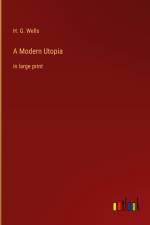von H. G. Wells
18,00 €
La guerre des mondes est un récit passionnant qui relate l'invasion de la Terre par des Martiens. C'est un témoin extérieur qui nous montre le désarroi et la lutte désespérée des hommes face à un cataclysme directement sorti de l'enfer. Si les Martiens sont d'abord présentés comme des êtres faibles (la gravité terrestre, trois fois plus forte que celle de Mars, les empêche effectivement de se mouvoir rapidement), ils ne vont pas tarder à dévoiler leur puissance, qui n'aura d'égale que leur cruauté.Chef-d'¿uvre de la science-fiction moderne, ce roman est le premier à décrire des extraterrestres à l'identité propre, intelligents et totalement inhumains. La guerre des mondes fait partie de ces textes qui traversent le temps, et il a inspiré un film à Steven Spielberg. La Guerre des mondes (The War of the Worlds) est un roman de science-fiction écrit par H. G. Wells, publié en 1898. C'est une des premières ¿uvres d'imagination dont le sujet est l'humanité confrontée à une race extraterrestre hostile, en plus d'être le reflet de l'angoisse de l'époque victorienne et de l'impérialisme.Le roman est adapté plusieurs fois : pour la radio (dont une version d'Orson Welles qui a défrayé la chronique en 19383), en jeux de rôle, en bande dessinée, en quatre longs-métrages et plusieurs séries4.Résumé« [¿] Par-delà le gouffre de l¿espace, des esprits qui sont à nos esprits ce que les nôtres sont à ceux des bêtes qui périssent, des intellects vastes, calmes et impitoyables, considéraient cette terre avec des yeux envieux, dressaient lentement et sûrement leurs plans pour la conquête de notre monde [¿] »1894. Des astronomes sont témoins d'étranges activités à la surface de Mars, comme des éclairs ou des explosions de gaz incandescent. L'étonnant phénomène se répète pendant les dix nuits suivantes puis cesse. Des météores venant de la planète rouge se dirigent bientôt vers la Terre. Le premier s'écrase en Angleterre, dans le Surrey : il s'agit d'un objet ayant la forme d'un cylindre de vingt-cinq à trente mètres. Les curieux se rassemblent autour du cratère formé par la chute du projectile, mais ils sont bientôt tués par un « Rayon Ardent » projeté par une machine gigantesque à trois énormes jambes sortie du cylindre.Par la suite, les autres cylindres envoyés depuis Mars s'écrasent et libèrent d'autres engins mécaniques contrôlés par des créatures tentaculaires installées à l'intérieur. Ces tripodes, armés de leur Rayon Ardent et d'un gaz toxique appelé « Fumée noire » (black smoke), se dirigent vers Londres en désintégrant tout sur leur passage. L'armée britannique réplique. Mais rapidement, la lutte tourne à l'avantage des envahisseurs. Les populations terrifiées fuient cet ennemi implacable qui pompe le sang des malheureux qu'il capture et sème partout une mystérieuse herbe rouge qui étouffe toute végétation. Commence alors pour le narrateur, une fuite dans un monde ravagé, où il ne croise plus que des êtres humains isolés à la limite de la folie. Puis il se rend compte que les Martiens cessent soudain toute activité : les microbes terriens, contre lesquels ils n'étaient pas immunisés, les ont exterminés.






























